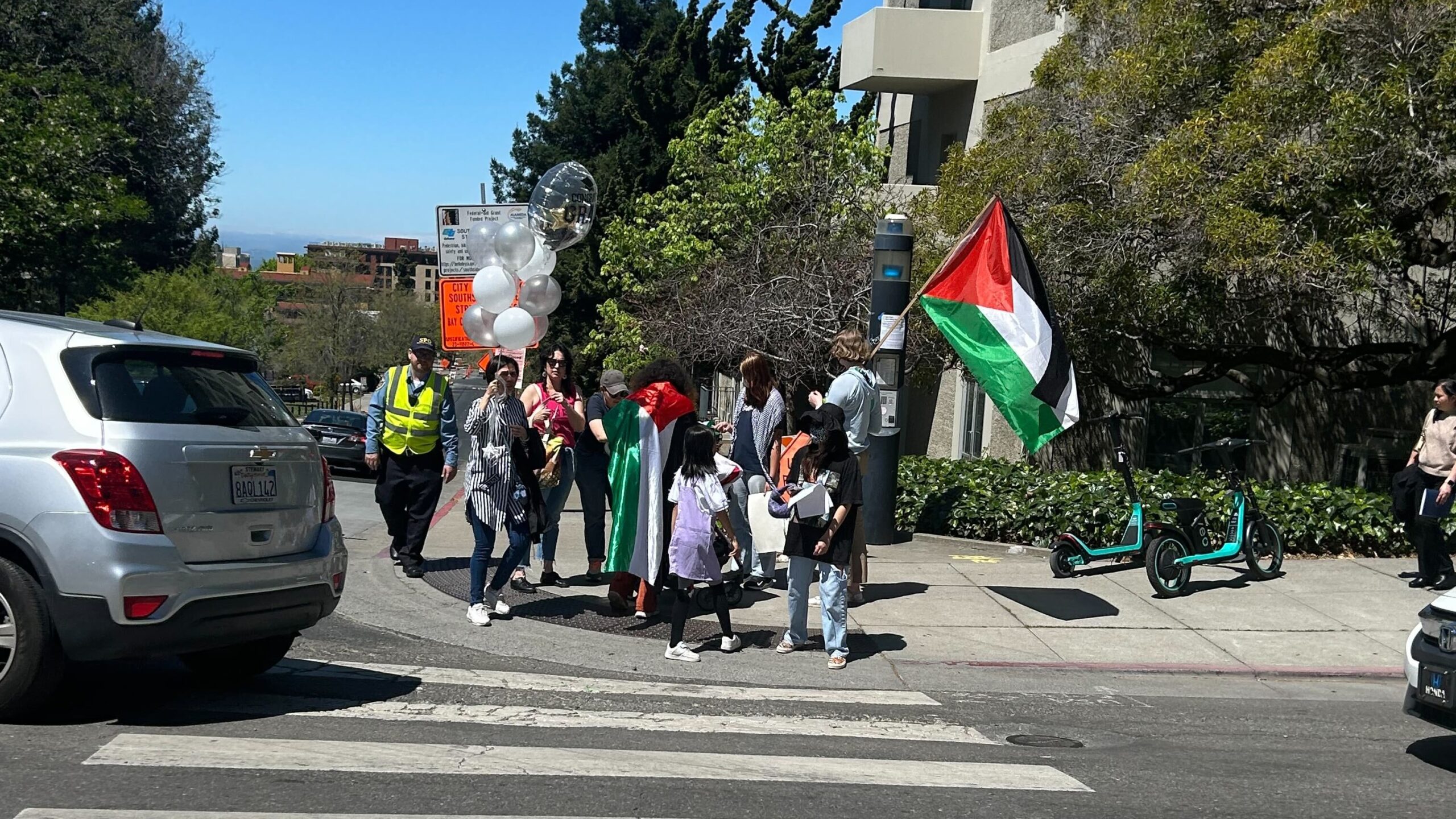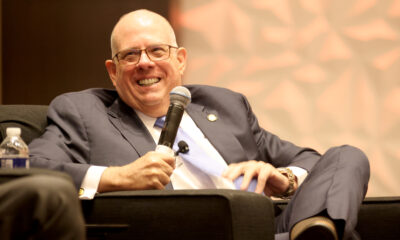Education
K-12 teachers report varied views on race, gender identity in new poll

A new poll from Pew Research Center is shedding light on one of the most pressing educational issues of our time: how do you teach about race and gender identity in K-12 schools? The country has become increasingly polarized on the topic, with states and school boards going as far as banning certain things from being taught.
But a question that comes up disappointingly little during these conversations is one for teachers. What do they think? After all, they are the ones spending the most time with these students, and they are the ones that will have to teach it to their students. Shouldn’t their opinion be important as well? The new poll from Pew Research Center asked a sample of K-12 teachers in public schools about whether students should learn about a certain topic in school.
On the legacy of slavery, 64% of teachers believe that students should learn that slavery still affects Black Americans today. 23% believe that it should be taught as part of history but that it does not affect Black Americans today, and just 8% believe that it should not be taught in schools at all.
The topic of gender identity becomes more controversial. 50% of teachers polled said that students should not learn about gender identity in school. 33% of teachers think that students should learn that gender can be different from the sex assigned at birth, and 14% believe that gender should be taught as the sex assigned at birth, an unchangeable fact.
The topic of gender identity becomes even more controversial when you narrow down the sample to just elementary school teachers, 62% of which believe that it should not be taught in school. However the number decreases dramatically in high school, where just 35% of teachers believe it should not be taught, and 45% believe that it should.
The poll also asked teachers if they though parents should be allowed to opt out of having their kids taught these controversial topics. 25% of teachers believed that parents should be able to opt their children out of learning about racism and racial inequality, lower than the 34% of parents who say that they should be able to opt their children out of such content. The numbers get higher when discussing gender identity. 48% of teachers say that parents should be able to opt their children out of learning about sexual orientation or gender identity, along with 54% of parents.
Unsurprisingly, when broken down by political leanings it reveals more hesitancy to teach both of these topics amongst Republicans. In contrast, Democrats are much more comfortable teaching these issues. This partisan divide is likely to only grow as polarization continues to increase around these topics.
Education
As smartphone bans enter the mainstream, what does that mean for students?

California Governor Gavin Newsom has called for schools to restrict students’ smartphone usage, and some California schools are setting those plans in motion. Could this develop into a broader movement that spreads around the country, or is it limited to just California?
On Monday, Surgeon General Dr. Vivek Murthy argued that smartphones should be required to have warning labels similar to those on cigarettes and alcohol. He claims that they negatively affect the mental health of young people in the United States and that their use should be more controlled than it is now.
One major way to restrict the usage of smartphones, Newsom points out, would be to take them out of schools. In an interview with POLITICO, he argued that “social media is harming the mental health of our youth.” He promised to craft legislation before the end of the legislative period in August that would restrict the use of smartphones during the school day.
Besides the Biden administration and Governor Newsom, other Democratic politicians have geared up to take action against the influence of technology companies on young Americans. In Los Angeles, a school board put these plans into action and, on Tuesday, approved a motion to ban cell phone usage while students are on campus.
These policies have long been popular with some Republicans in the United States, who have been railing against ‘Big Tech’ for years. Ron DeSantis, the Governor of Florida, passed similar legislation to block students from using smartphones during class hours. However, many of these policies are least popular with the people they will affect the most: students and parents.
Many of these smartphone bans continue even during break periods, lunch, and recess. This could cause issues for a number of students, including those with complicated home lives, those who work part-time jobs after school, those who are responsible for younger siblings, and many others whose lives depend on being reachable during the school day.
Regardless of student concerns, these bans are spreading across the country. Students should prepare for a return to a smartphone-less school.
Education
Dartmouth graduate student reported missing

A graduate student at Dartmouth College was reported missing to the Lebanon Police Department in New Hampshire on May 17th. The information was released to members of the public on May 19th.
Kexin Cai is a graduate student at Dartmouth College, and according to her profile on the Dartmouth website is currently studying “emergent dynamics between interacting brains during real-time reciprocal social communication.” Cai is a member of the Mutual Understanding Lab at Dartmouth.
According to the Lebanon Police Department, Cai was last seen on May 15th. They are urging anyone with information on her whereabouts to contact the department.
The Lebanon Police Department has not yet responded to request for comment.
This is an evolving story, check back with The Youth Insight for updates.
Education
Protests continue at University commencements

Following weeks of pro-Palestine protests on college campuses, the academic year is wrapping up at universities across the United States. However commencement ceremonies, which have traditionally been a place for students to celebrate their accomplishments over the previous four years, have this year turned into a venue for protest over university policies surrounding Israel.
At Duke University, students walked out of a speech featuring actor and comedian Jerry Seinfeld. They chanted “free free Palestine” as his speech was announced in protest of his pro-Israel views. Seinfeld has been very supportive of Israel in months following October 7th.

UC Berkeley also experienced their own protests at the undergraduate graduation ceremony, which was interrupted by pro-Palestinian students. The ceremony was halted as students waved flags, before the protestors made their way outside of the stadium to continue their demonstration.
These are not isolated incidents, they have spread around the country. Students at Virginia Commonwealth University walked out on a speech by Governor Glenn Youngkin. University of Wisconsin students turned their back on the school chancellor in protest.
Other schools, like Arizona State, have been forced to ban students from their ceremonies in an attempt to avoid disruption at their ceremonies. While still more schools have been forced to cancel their commencements and graduations altogether.
This is a developing story, check back with The Youth Insight for updates.
-

 Campaign 20242 years ago
Campaign 20242 years agoNew poll reveals Hogan’s path to victory
-

 Campaign 20242 years ago
Campaign 20242 years agoRep. Mike Collins makes antisemitic post on X
-

 Campaign 20242 years ago
Campaign 20242 years agoThe Minor Candidate Debate Recap
-

 Opinion2 years ago
Opinion2 years agoOp-ed: Stop talking about Bidenomics
-

 State Politics2 years ago
State Politics2 years agoThe new minimum wage in California
-

 Campaign 20242 years ago
Campaign 20242 years agoRFK Jr. campaign releases surprise rap song
-

 Campaign 20242 years ago
Campaign 20242 years agoRuben Gallego quietly leaves Progressive Caucus
-

 Uncategorized2 years ago
Uncategorized2 years agoRight-wing commentator Candace Owens fired from Daily Wire



